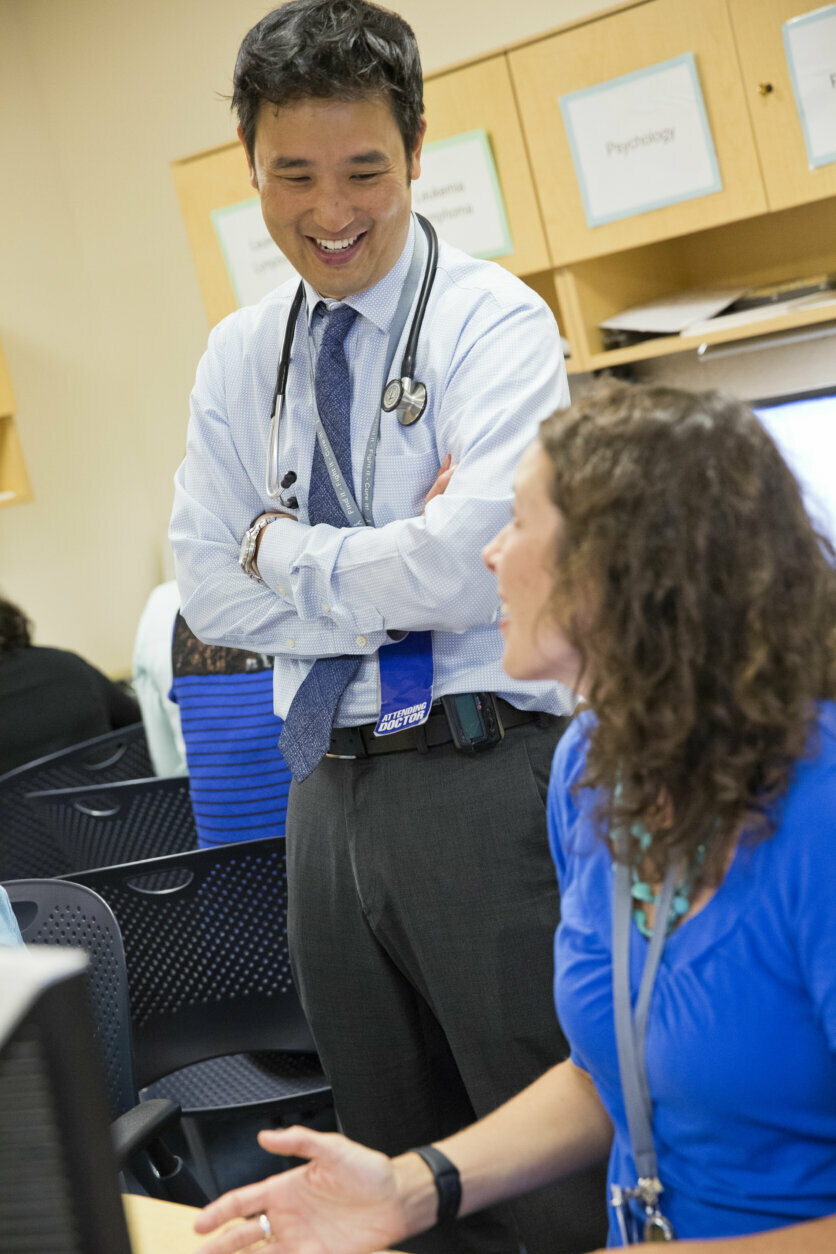
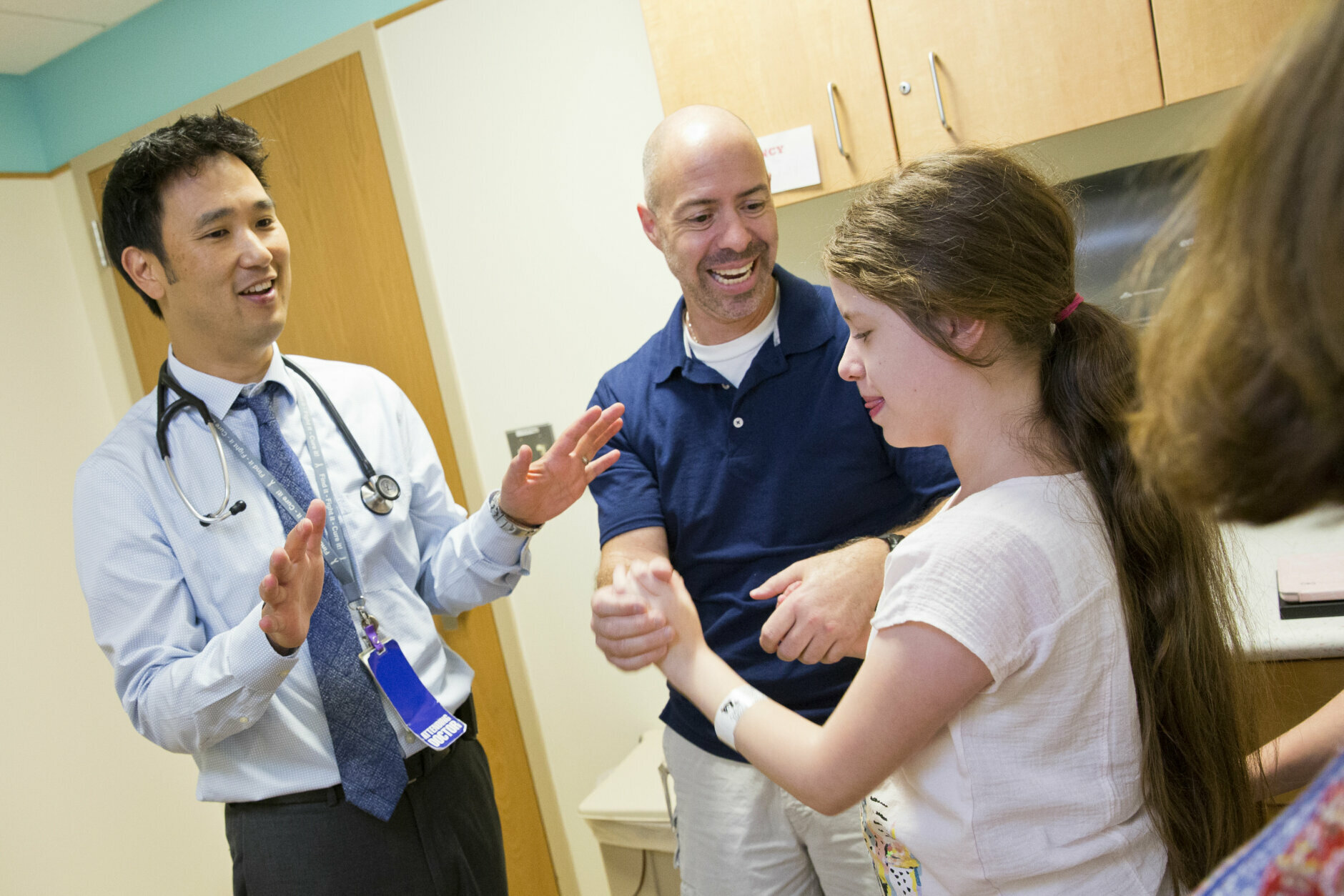

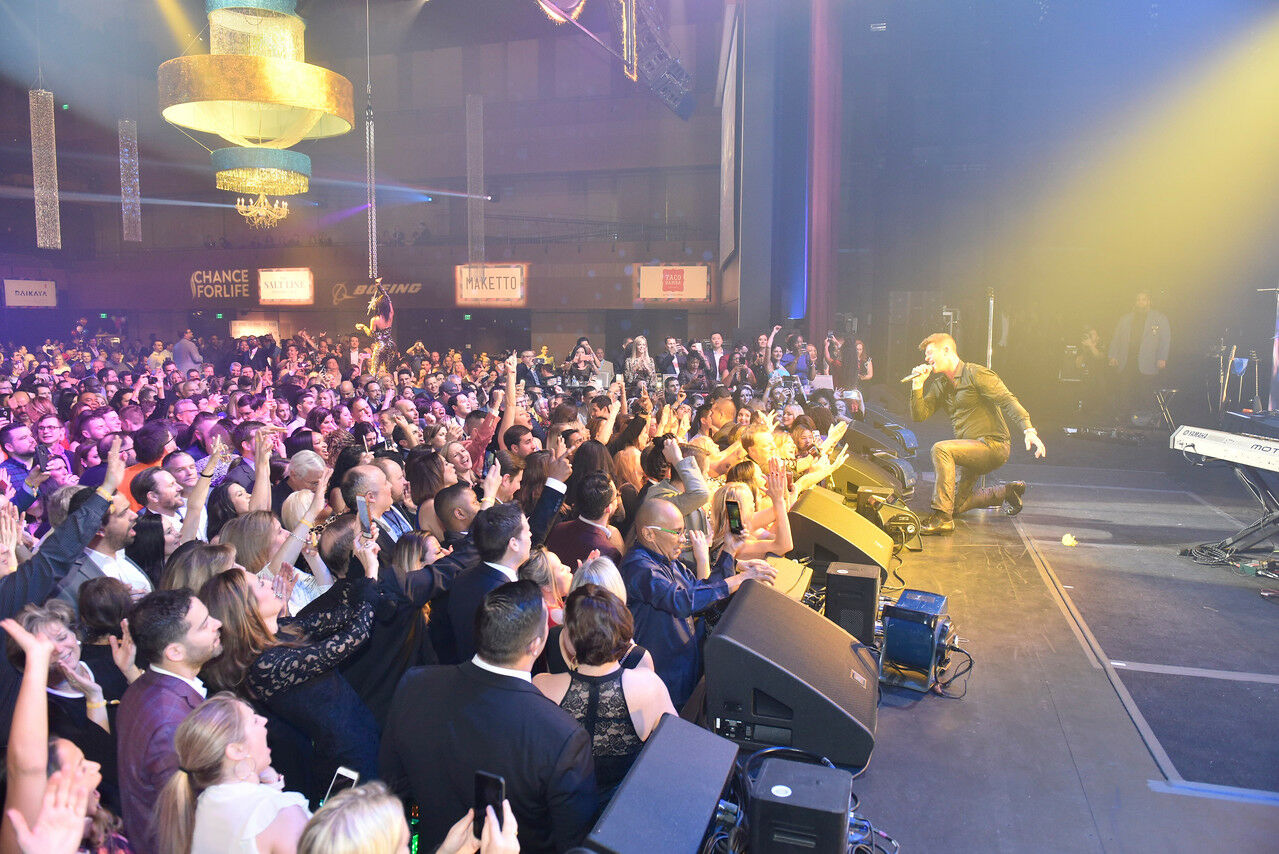
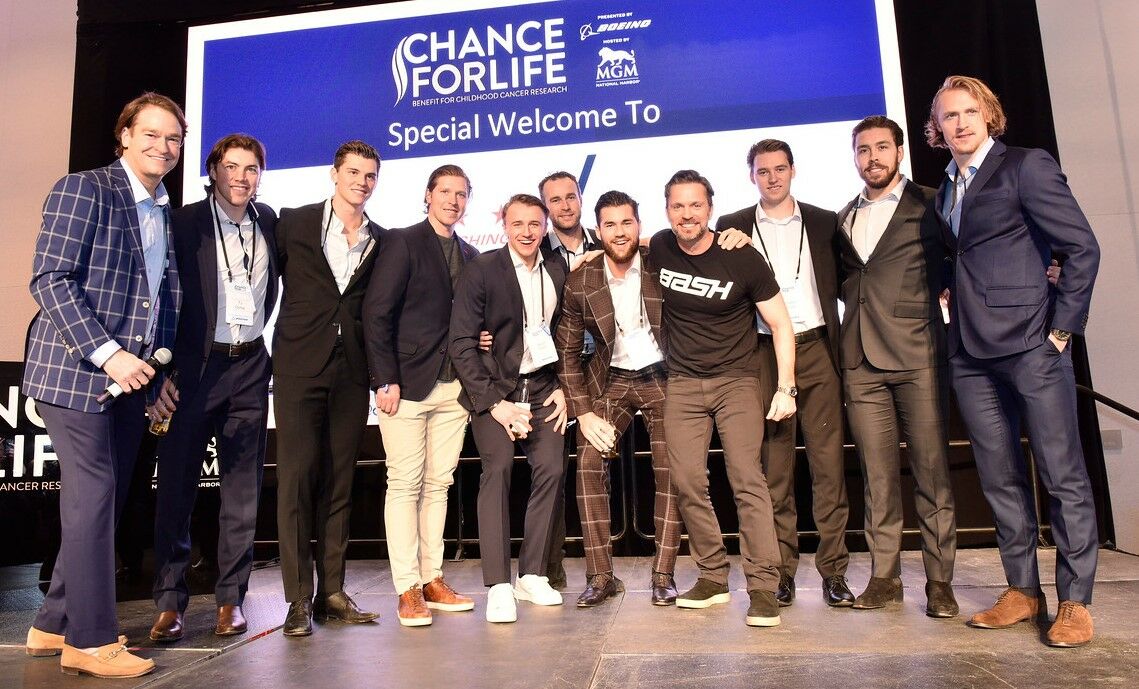
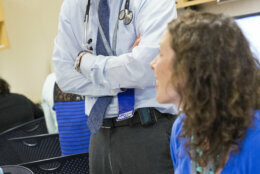
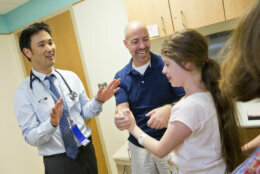


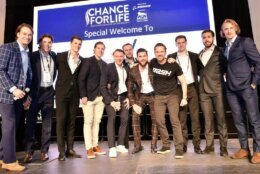
Less than 4% of money raised for cancer research targets pediatric cancers, but a D.C.-area charity that’s devoting resources to benefit young cancer victims is sponsoring trials at Children’s National Hospital.
Clinical trials underway for about a year are turning patients’ own immune system cells into an army of soldiers to attack their brain cancer tumors.
“We’re all really excited,” said Dr. Eugene Hwang, associate division chief of oncology at Children’s National Hospital. “The biggest problem would have been if we ran into a big side effect or toxicity signal, and we have not.”
Hwang’s research has been funded for the past two years by the Chance for Life Foundation that was founded in 2005 — inspired by a 2-year-old goddaughter’s cancer diagnosis.
“I wanted to create awareness and support for my friend, but I had no idea how little money was being given toward pediatric cancer research,” said Chance for Life founder Brad Nierenberg, of McLean, Virginia. “So, over the last 15 years, we’ve raised over $6.5 million for research specifically.”
The first aspect of Hwang’s REMIND trial involves three phases of introducing 20, then 40, and then 80 million reprogrammed immune system “soldier cells” into children’s bodies to see whether the bodies can accept them at a level that’s both safe and effective.
Successful treatments don’t necessarily make the tumors shrink; tumors might appear larger as they become inundated by the attacking soldier cells.
The first two phases have been successful; the third phase begins soon.
“So, we’re already planning our next trial that will take the backbone of this REMIND trial, which Chance for Life has helped us with, and move that into a phase where there are multiple different parts that hopefully work together to make the cell therapy even stronger,” Hwang said.
The ultimate goal is to use a patient’s own immune system to kill and attack tumors in ways that radiation, chemotherapy and surgery haven’t been effective enough for, and with fewer side effects.
“Imagine if you hear those words, ‘Your child has cancer.’ What do you do? Who do you call? What are my options? And, so many times, those options are barbaric,” Nierenberg said.
Chance for Life will be funding six new initiatives this year based on recommendations from a medical advisory board the charity set up a few years ago.
“We asked the best pediatric oncologists from around the country to come and take proposals from unfunded opportunities, and review them, and select which ones should be funded,” Nierenberg said.
The projects are wide-ranging, involving research or trials that haven’t been done before.
“The DIPG research that we are going to fund sets genetic markers within the child’s brain that tracks different treatments and how the cancers react to those treatments,” Nierenberg said.
DIPG brain tumors aggressively attack a child’s brain stem and have a mortality rate of about 95% within six to 18 months.
This year, the Chance for Life Foundation is partnering with the Bethesda, Maryland-based Willie Strong Foundation to help sponsor a professorship at Children’s National.
“One of the big challenges of pediatric cancer research is the funding of the doctors to do the work,” Nierenberg said. “What the Willie Strong Foundation is trying to do is fund a doctor’s work, saying, ‘We want this doctor 100% dedicated to this type of research,’ and that’s a huge step toward helping pediatric cancer — is having a doctor committed to only doing that. And that takes money.”
About $2 million will be needed to create an endowment to establish the William Seamus Hughes Professorship in Neuro-oncology and Immunology at Children’s National.
Chance for Life is holding its yearly fundraiser, featuring a Texas Hold’em amateur tournament, celebrity chef tasting and Vegas-themed after-party this weekend at MGM National Harbor. It has already sold out.
Editor’s note: WTOP is again partnering with Chance for Life.








